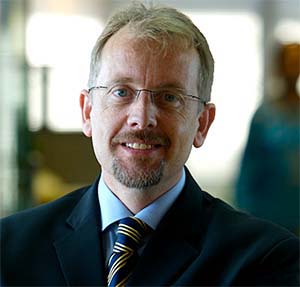Kathy Gibson reports – Since the first power looms heralded the start of the first industrial revolution, technology has been displacing people from jobs, and the current Fourth Industrial Revolution is continuing the trend – but on an unprecedented scale.
Estimates are varied, but the World Economic Forum believes as many as 7,1-million jobs will be lost as technologies associated with the Fourth Industrial Revolution, like automation and artificial intelligence, start doing the work previously done by humans.
It’s not all doom and gloom, though: Microsoft commissioned a study from IDC, “Economic Impact of IT & Microsoft in South Africa”, which found that digital transformation will create well over 100 000 new jobs in the country by 2020.
This is off the back of the IT sector growing as an anticipate 4,25% compound annual growth rate (CAGR), reaching R175-billion by 2020.
 Mark Walker, regional vice-president for IDC Middle East and Africa, explains that the economic impact model shows the IT workforce enjoying growth well in excess of the general workforce as IT spend outstrips general spend.
Mark Walker, regional vice-president for IDC Middle East and Africa, explains that the economic impact model shows the IT workforce enjoying growth well in excess of the general workforce as IT spend outstrips general spend.
“IT spend had a growth rate of about 4,25% in 2017,” he says. “Total workforce growth was 1,6% while the IT workforce grew at 4,19% – so the IT workforce is growing about three-times faster than the overall workforce.”
Importantly, IT professionals within end user companies are growing faster than workers in the IT industry. “These are the people who make technology work,” Walker points out.
Cloud computing has had a major effect over the last few years. By the end of 2017 ,public cloud represented about 3% of the total IT market and by 2022, it will represent about 6,6%.
Between 2017 d 2022, cloud computing will create about 112 000 net new job opportunities, Walker says. “That is across the full ecosystem: IT professionals as well the people who use technology to some degree – it cuts across the entire ecosystem.”
Cloud will therefore not be a jobs destroyer, Walker adds.
The Microsoft ecosystem incudes Microsoft itself as well as the hardware, software and services partners based on the technology.
Today, 60% of software used in South Africa runs on the Microsoft operating system platform, with 80% of PCs running Microsoft software.
Importantly, for every $1.00 spent on a Microsoft product, $2,9 is spent on hardware, $1.91 of software and $4.01 on services.
MIcrosoft therefore adds to the overall economy, Walker says, and there is an impact on the total employment point of view.
With a total IT employment in South Africa currently at 522 000, Microsoft is responsible for 44% of that. And going forward, the Microsoft ecosystem will result in 53 000 net new job opportunities.
 Zoaib Hoosen, MD of Microsoft SA, adds that the effects of technology adoption won’t have an effect just on employment, but on companies’ revenues as well.
Zoaib Hoosen, MD of Microsoft SA, adds that the effects of technology adoption won’t have an effect just on employment, but on companies’ revenues as well.
“It’s significant that the spending on public cloud will just about triple over the next five years,” he says. “But it is also significant that companies will experience new revenue streams of close to R81-billion.”

